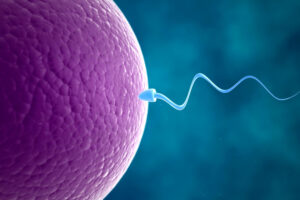The impact of lifestyle on fertility is a subject that has garnered significant attention from researchers and healthcare professionals in recent years. Lifestyle choices can influence both male and female fertility, and understanding these connections can help individuals and couples make informed decisions to improve their chances of conception.
Here are some key lifestyle factors that can affect fertility:
- Smoking: Smoking is linked to reduced fertility in both men and women. It can harm the reproductive organs, decrease sperm count and motility in men, and lead to an increased risk of miscarriage and infertility in women.
- Alcohol Consumption: Heavy alcohol consumption can disrupt hormone levels, affect ovulation and sperm production, and increase the risk of fertility issues for both sexes.
- Diet and Nutrition: A balanced diet rich in essential nutrients can positively impact fertility. Maintaining a healthy weight is also crucial, as both obesity and being underweight can lead to fertility problems.
- Physical Activity: Regular moderate exercise is beneficial for overall health and fertility. However, excessive exercise can disrupt menstrual cycles in women and reduce sperm quality in men.
- Stress: High levels of stress can interfere with hormonal balance and ovulation in women, as well as sperm production in men, potentially affecting fertility.
- Environmental Factors: Exposure to certain chemicals and pollutants in the environment, such as pesticides and endocrine-disrupting chemicals, can harm reproductive health.
- Sexual Health and STDs: Untreated sexually transmitted infections (STIs) can lead to pelvic inflammatory disease (PID) in women, causing fertility problems. STIs can also affect sperm health in men.
- Age: Advanced maternal age is associated with a decline in fertility, as the quality and quantity of eggs decrease over time. While men can produce sperm throughout their lives, the quality may decline with age.
- Sleep: Poor sleep quality and insufficient sleep may negatively affect reproductive hormone levels in both men and women.
- Substance Abuse: The use of illicit drugs can impact fertility and increase the risk of pregnancy complications.
Understanding the connections between lifestyle and fertility is essential for individuals and couples planning to conceive. Making positive lifestyle changes, such as quitting smoking, moderating alcohol consumption, maintaining a healthy diet, managing stress, and seeking prompt treatment for sexual health issues, can improve fertility outcomes.
For those facing difficulties conceiving despite making lifestyle changes, it’s crucial to consult with a fertility expert at Boon IVF. They can conduct a comprehensive evaluation to identify any underlying medical issues and provide appropriate guidance and treatments to enhance fertility.
For more queries, reach out to our fertility expert from AIIMS Delhi


